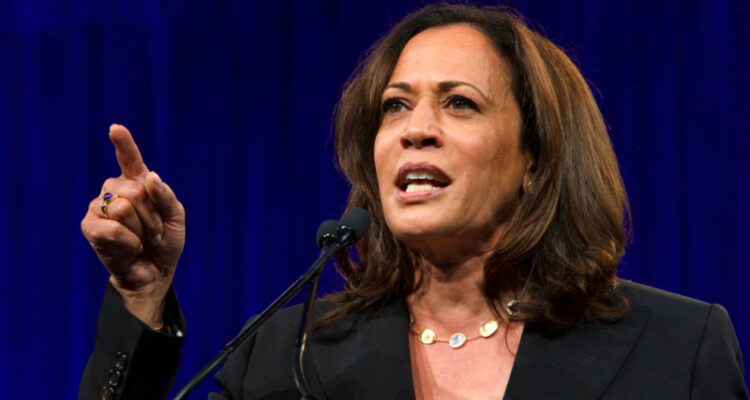But Harris failed to address the concerns of top economists who slammed the proposal, first introduced on Wednesday, for being bad communist policy.
By Blake Mauro, The Washington Free Beacon
In her first policy speech as the Democratic presidential nominee, Kamala Harris officially proposed her economic plan to address the high cost of living but failed to offer additional details on what economists have called her “Soviet” price control scheme.
During the North Carolina rally, Harris said her price gouging plan—a phrase she mispronounced as “price gaging”—would pose “new penalties” for companies that “exploit crises and break the rules” and support “smaller food businesses that are trying to play by the rules and get ahead.”
But Harris failed to address the concerns of top economists who slammed the proposal, first introduced on Wednesday, for being bad communist policy.
“It’s hard to exaggerate how bad this policy is,” the Washington Post’s Catherine Rampell wrote in a scathing op-ed Friday morning. “Supply and demand would no longer determine prices or profit levels. Far-off Washington bureaucrats would.”
“We’ve seen this kind of thing tried in lots of other countries before,” Rampell said in a CNN appearance following her editorial. “Venezuela, Argentina, the Soviet Union, etc. It leads to shortages. It leads to black markets.”
During her 35-minute speech, Harris compared her price control to her record as a California prosecutor, saying she “went after companies that illegally increased prices … and companies that conspired with competitors to keep prices of electronics high.”
Harris also said her policies would “help the food industry become more competitive,” saying she believes that competition is the “lifeblood of our economy.” Critics of Harris’s plan, however, say her policies would likely drive competition out of the market.
Former Obama administration economist Jason Furman warned Harris’s price control scheme would prevent the economy from adjusting and keep competition artificially regulated.
If prices are not allowed to increase in response to demand, new companies will be hesitant to enter the market to increase supply, he told the New York Times on Friday.
“This is not sensible policy, and I think the biggest hope is that it ends up being a lot of rhetoric and no reality,” Furman, a Harvard economist, said. “There’s no upside here, and there is some downside.”
The remainder of Harris’s remarks focused on her proposed subsidies for first-time home buyers and an increased Child Tax Credit, which critics also slammed as “economically dumb.”
Her proposed plan is estimated to give $1.7 trillion in handouts to people struggling in the current Biden-Harris economy, according to the Committee for a Responsible Federal Budget.
The estimate does not include the grocery price controls and mostly comes from her increase on the Child Tax Credit.
Harris promised to solve the housing crisis in the first year of her administration by adding 3 million houses to the market and offering $25,000 down-payment subsidies for first-time homebuyers.





